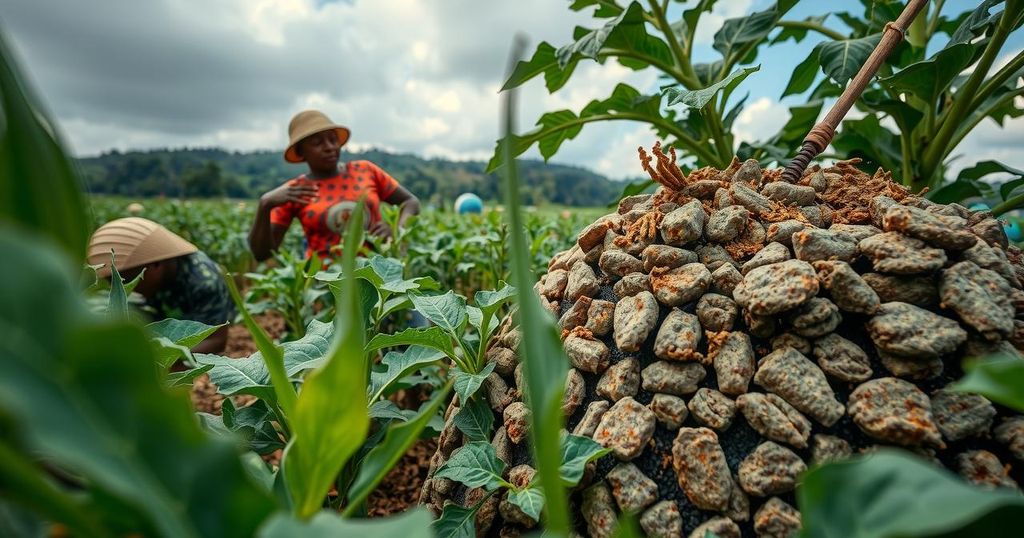Transformative Impact of Maggot Farming in Zimbabwe: From Drought Survival to Economic Resilience

Zimbabwean farmers are increasingly adopting maggot farming to counteract the food shortages caused by persistent drought. Initially met with skepticism, the practice of breeding black soldier flies has proven beneficial in providing low-cost, protein-rich feed for poultry and improving economic conditions in rural areas. This method highlights the potential for innovation in agriculture to enhance food security and sustainability in the face of climate challenges.
Farmers in southeastern Zimbabwe, particularly in Nyangambe, have shifted their focus to maggot farming as a strategy to combat food shortages caused by drought. Initially wary of this unconventional method, Mari Choumumba and others are now recognizing its potential. By cultivating black soldier fly larvae, these farmers are producing cost-effective, protein-rich feed for their poultry, significantly reducing production costs. As the agriculture sector faces the pressures of climate change, maggot farming not only addresses food insecurity but also utilizes organic waste, contributing positively to the environment. This practice, once met with skepticism, is gaining traction, as nearly half of the farmers approached are now involved, sharing the benefits of this alternative livelihood.
Choumumba, who previously viewed flies as pests linked to health issues, has embraced the potential of maggot farming, turning waste into a profitable venture. Through her efforts, she generates substantial chicken feed and sells free-range poultry, effectively improving her community’s economic standing. This initiative highlights the importance of innovation in agriculture amidst changing climate conditions, paving the way for sustainability and resilience in rural farming communities.
The project runs alongside efforts by experts at Chinhoyi University, who are working to promote maggot farming as a viable agricultural solution in Zimbabwe. By harnessing locally available resources and minimizing waste, they offer a practical response to the environmental challenges affecting the region.
Overall, the transition from traditional farming to maggot cultivation signifies a paradigm shift in agricultural practices within Zimbabwe, demonstrating an admirable resilience in the face of adversity.
Zimbabwe’s agricultural sector has been significantly impacted by recurrent droughts and economic hardship, affecting farmers’ ability to produce staple crops, notably corn. With the traditional reliance on livestock and crops increasingly jeopardized by climatic conditions, innovative solutions are being sought. Maggot farming, particularly the breeding of the black soldier fly, offers a new approach; it not only provides protein-rich feed at lower costs but also contributes to waste reduction and environmental sustainability. This method is being actively promoted by various stakeholders, including government agencies and international organizations, as a means to bolster food security and livelihoods in affected communities.
Maggot farming is emerging as a transformative agricultural practice in Zimbabwe, enabling farmers impacted by drought to secure their livelihoods while promoting sustainability. By converting organic waste into valuable protein, farmers like Mari Choumumba are not only alleviating food shortages but also fostering economic growth within their communities. This shift from traditional methods to innovative practices underscores the necessity for adaptability in agriculture, paving the way for a resilient future amid climate uncertainties. As acceptance of maggot farming increases, it symbolizes a broader change in agricultural perspectives and practices necessary for survival in challenging conditions.
Original Source: apnews.com







